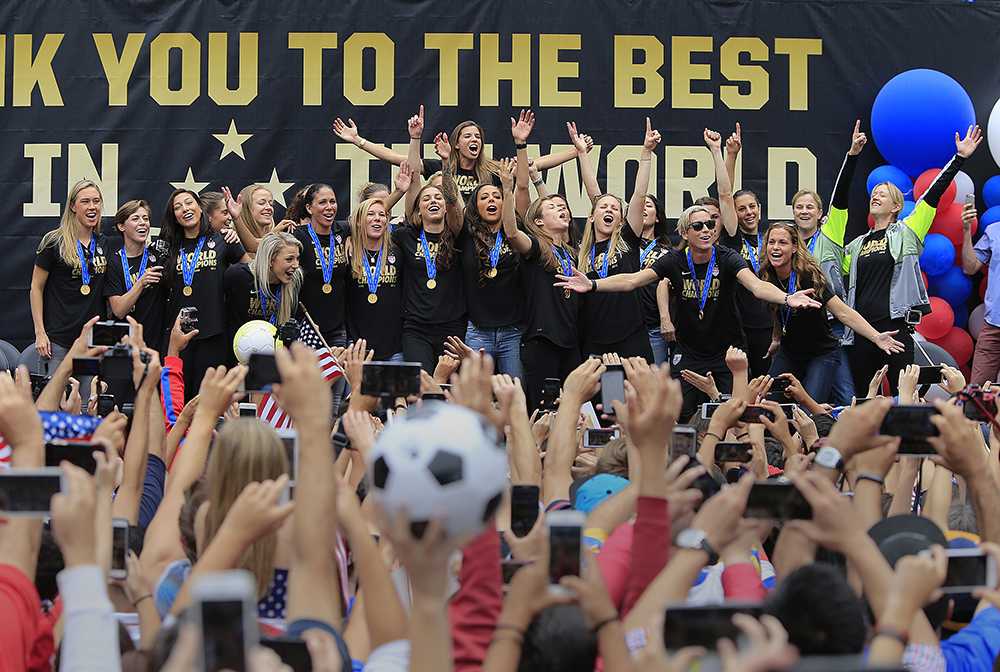The U.S. Women’s World Cup team just became stars. In addition to the team winning the cup in dominating fashion, the final game became the most viewed soccer game in the history of American television, with more than 25 million viewers.
But what will that accomplish as far as gender equality in sports?
The gender gap for sports has always been evident. Not only do women athletes get paid far less than their male counterparts, but they are treated differently both on and off the field with the organizations they are part of and trouble in their personal life.
As the 2015 Women’s World Cup kicked off in Canada on June 6, there were many issues surrounding FIFA. The most notable was the scandal with nine FIFA officials arrested for allegedly accepting bribes.
Former FIFA president Sepp Blatter was not indicted on any charges and was even voted in as president for his fifth term before stepping down.
Awash the scandal, Blatter was not in attendance at the women’s world cup final between USA and Japan. According to ESPN, Blatter said that until the scandal had been cleared up, he did not want to risk traveling.
We know Blatter could not care less about women’s soccer. Especially since he thinks that the women wearing shorter and tighter shorts will increase viewership for the games.
There is not just an issue between the viewership of the two genders, but the pay gap as well. According to CNN, the total prize money this year for all the Women’s World Cup teams was $15 million compared to $576 million for last year’s Men’s World Cup, or 38 times less, according to NBC Sports.
The U.S. women’s national team will take home $2 million for its win, while a men’s teams who loses in the group stage of the cup takes home $8 million.
Another blaring issue was the fact that this year’s tournament took place on artificial turf instead of real grass. Turf not only increases the risk of injury for the athletes, but can also raise temperatures on the field by up to 20-30 degrees according to USA Today. It has even generated a lawsuit against FIFA.
U.S. National Team forward Abby Wambach was at the forefront of the lawsuit against FIFA and the Canadian Soccer Association, and said in an interview with ESPN that there were many companies who offered to pay for grass to be put into the stadiums.
“They offered FIFA, offered the Canadian Soccer Association to do it for free [in] all the stadiums,” Wambach told ESPN. “To me, it wasn’t about that there was grass or no grass, it was about FIFA not wanting to do anything that anybody else wanted, except them wanting to do what they wanted to do.”
Even before the World Cup started, issues regarding one of the most recognized names in women’s sports, Hope Solo, came to the forefront of sports news.
Solo, arguably the best goalie in women’s soccer, did not face any domestic assault charges for an alleged attack against her half-sister and nephew in June 2014 from the courts as her case was dismissed.
When Ray Rice was charged with domestic violence, it was dealt with before the 2014 NFL season. It was not handled correctly at first, but Rice got the punishment he deserved and was let go from his team and did not play that season.
Perhaps Solo’s presence on the field and resonance with fans of the sport caused the courts to dismiss her trial until after the World Cup. But if Solo were male, her case would have been handled differently.
No one is complaining about the incredible 5-2 victory that brought the FIFA Women’s World Cup Championship trophy back to the states, but there is a long line of problems surrounding FIFA that need to be addressed.




